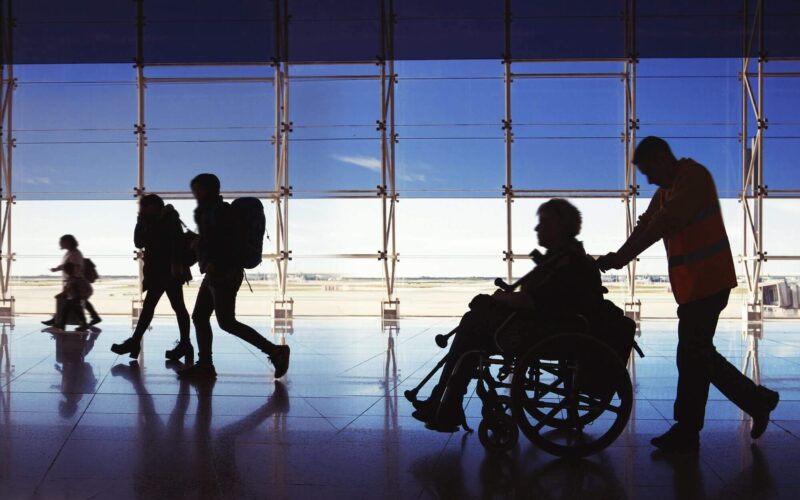The US Department of Transportation (DOT) has issued new protections for commercial airline passengers with disabilities.
The new final rule, which was announced by US Transportation Secretary Pete Buttigieg on December 16, 2024, requires airlines to “meet more rigorous standards” for accommodating passengers with disabilities, especially for those who use wheelchairs.
“We’ve taken unprecedented actions to hold airlines accountable when they do not provide fair treatment to passengers with disabilities,” said Buttigieg. “With the new protections we’re announcing, we’re establishing a new standard for air travel – with clear and thorough guidelines for airlines to ensure that passengers using wheelchairs can travel safely and with dignity.”
The rule requires that airlines provide “safe and dignified” assistance to disabled passengers. The DOT defines “safe” to mean “assistance provided to individuals with disabilities that does not put them at heightened risk of bodily injury”, while the rule defines “dignified” to mean helping in a way that “respects a passenger’s independence, autonomy, and privacy”.
The rule also requires annual training for airline employees and contractors who physically assist passengers with mobility disabilities or handle passengers’ wheelchairs or scooters. All airline employees and contractors who provide physical assistance to persons with mobility disabilities or handle the transport of wheelchairs or scooters must receive training by June 17, 2026.
Additionally, the rule requires airline staff to deliver “prompt” assistance to passengers during boarding, deplaning, and making flight connections. This includes helping them around the airport terminal. Airline staff will also be required to ensure a passenger’s personal wheelchair is available “as close as possible to the door of the aircraft to the maximum extent possible, if requested”.
The DOT added that airlines must return all checked wheelchairs and other assistive devices to passengers “in the condition in which they are received”. Additionally, the rule requires airlines to reimburse passengers for the costs of any transportation to or from the airport if the passenger’s wheelchair or scooter is delayed by the airline.
According to the DOT, the rule requests airlines to deliver a delayed wheelchair or scooter to the passenger’s destination within 24 hours for domestic flights and within 30 hours for long international flights.
Lastly, the new rule requires airlines to offer to disembark passengers and rebook them on the next available flight of the same carrier or a partner carrier at no additional cost when passengers’ wheelchairs or scooters are not loaded on their scheduled flights.
The new rule will come into effect from January 16, 2025.


2 comments
Well, at last.
Though not wheelchair bound, myself, my wife is so burdened. Even before she had to use the chair, air travel was difficult and the airlines had little concern about the difficulties boarding, deplaning, and travel through a terminal for older passengers.
For younger travelers, it must be difficult to understand, we, the senior population did not intend to move more slowly and with more difficulty because of the pain of movement, we did not intend to impede the speed of getting from one place to another.
Guess what? If you survive to become a septuagenarian, we are not here to inconvenience you, we are just slower than we were in our youth.
To have the Government recognize this fact, and demand that the airlines accommodate their older paying passengers is refreshing. The US population is living longer. The boomers are still alive and should be treated like any other citizen, even if we don’t move as quickly.
Bravo, DOT.
Airline connections are often quite tight. How will accomodating the ‘prompt’ availability of a wheel chair to deplane mobility challenged passengers affect congested egress from aircraft that delay mobile passengers which, for late arrivals makes it likely the connected flight is missed?